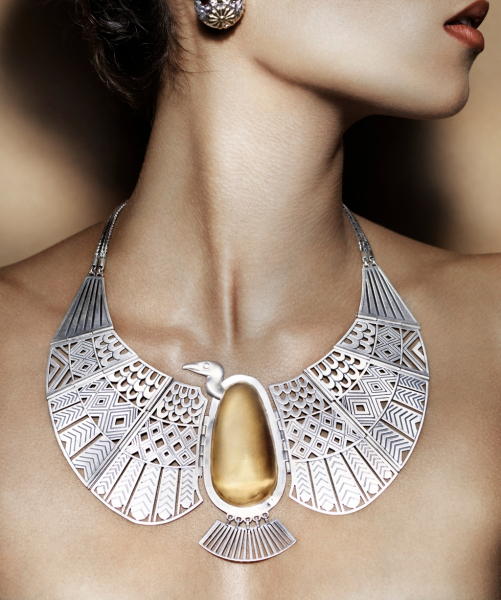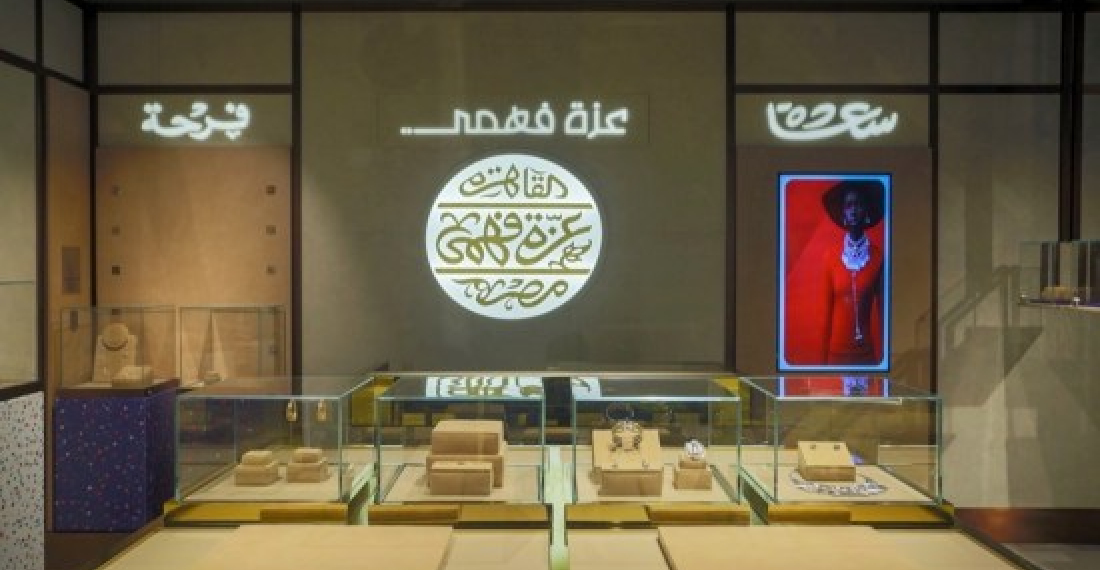In an interview with the UAE newspaper The National to mark the brand's launch at a new Dubai concept store, the chief executive of the Azza Fahmy jewellery brand Fatma Ghaly, presented how the brand was forced to get creative, and represent an image of Egyptian local craft.
Ghaly is one of the forces driving the label as it looks ahead to its next decades of design. She is the daughter of Azza Fahmy who was the first Egyptian woman to train in Cairo's jewellery and antiquities quarter known as Khan El Khalili.
“People today are looking for something with meaning; they no longer want to just wear a piece of metal that looks nice,” Ghaly tells The National. “They want something that connects, that has a message. And we see this with our clients. They want something because of what the writing says. Clients remember what every piece means.”
The brand uses Pharaonic symbols such as Nubian architecture and scarab beetles as well as evil eyes and crescent moons, folded through with flowing lines of Islamic-inspired calligraphy. Pieces of metal often feature short words of poetry and good wishes such as “you are all I wish for” and “be happy, my heart".

Describing the label as "wearable art", Ghaly says each piece offers a personal connection to its wearer. Today, the design work is shared between Fahmy and another of her daughters, Amina Ghaly. “They are inspired by everything,” Fatma Ghaly explains. “Egyptian culture, Arab, Mexican, African, Victorian and Indian – it’s a mix of all these ideas.” Having recently celebrated 50 years of trading, the brand now is looking to expand. After success in London, Azza Fahmy has also opened a branch at the Mall of the Emirates in Dubai.
The brand is also dedicated to protecting ancient handwork skills in its many endeavours. The brand is optimistic about its launch in Dubai and looks forward to future development.






